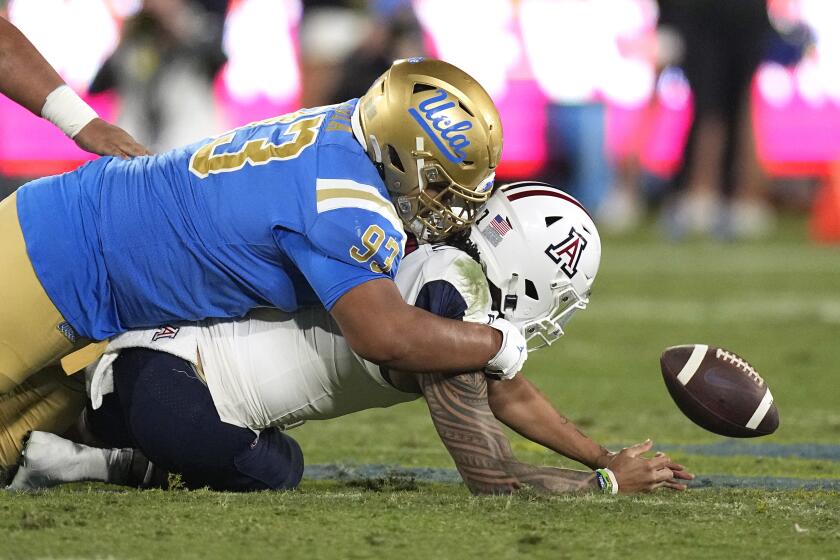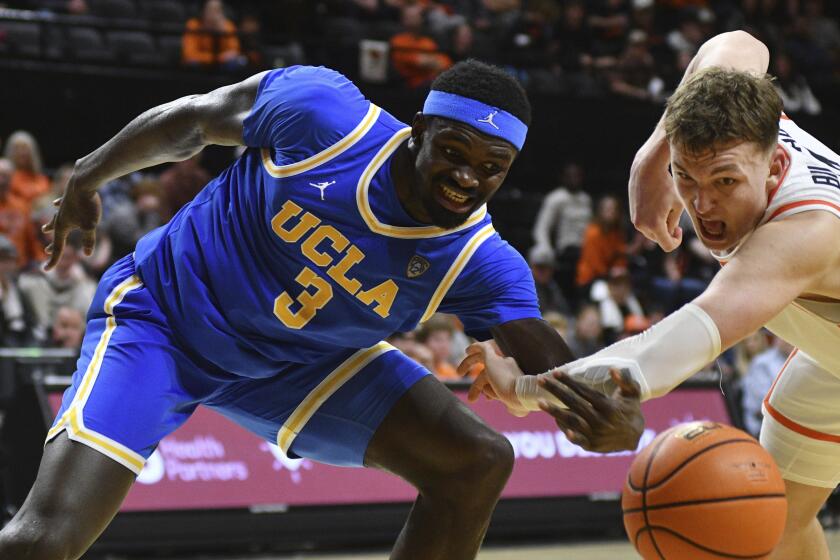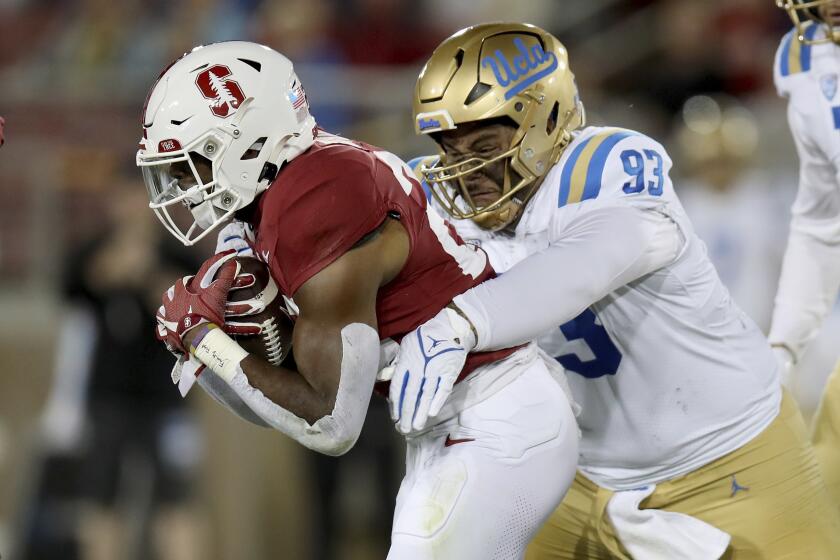Bruins will have to solve spread
If not for teams that featured spread offenses, UCLA may have finished the season at least 11-2 instead of 7-6.
That’s because this style of attack was the Bruins’ Achilles’ heel this year.
“We’re going to have to put our heads together and see what we can do schematically to slow these type of offenses down,” UCLA defensive coordinator DeWayne Walker said.
“Teams with good running backs and good receivers that spread you out. Those are the teams that” gave the Bruins problems all season.
Just look at the teams UCLA lost to this year. Washington, Oregon, Washington State, California and Florida State each featured shotgun multi-wide receiver sets, and Notre Dame rallied to a last-minute win with its own version of the spread.
“Our weakness right now is when teams spread us out,” junior middle linebacker Christian Taylor said. “We had trouble with that all year.”
The Bruins had success against the spread early when they opened with victories over Utah and Rice, two teams that feature this style of attack. But that was misleading because neither team had the type of skilled players to hurt UCLA’s aggressive schemes.
But just imagine UCLA’s defense, which is expected to return 10 starters next season, if Walker can get this problem fixed.
The key will be getting improved play from UCLA’s secondary, which started four juniors this year. Trey Brown, a three-year starter, is a solid cornerback primed to have a big senior season. Fellow cornerback Rodney Van fought off competition from freshman Al Verner all season and showed that he’s capable of getting the job done, but he has to be more consistent.
Strong safety Chris Horton is a future pro who follows behind Jarrad Page, a key rookie for the Kansas City Chiefs. Free safety Dennis Keyes is a two-year starter with size and speed but hasn’t put it together on a regular basis.
The key for the Bruins will be getting more contribution from players such as Verner, who will be hard to keep out of the starting lineup.
In order to slow down the spread, the more quality defensive backs with speed, the better.
UCLA will lose versatile senior Eric McNeal, a hybrid linebacker and safety, but players such as Bret Lockett, Aaron Ware, Matthew Slater and Christian Ramirez have to do something during spring drills to earn more playing time.
Junior linebackers Aaron Whittington and Taylor, sophomore John Hale and freshman Reggie Carter each gained valuable experience and can only get better.
The Bruins will miss senior defensive end Justin Hickman, who tied with Bruce Davis for the most sacks in the Pacific 10 Conference and forced offenses to work around controlling him every game.
Nikola Dragovic, a starter before getting suffering a season-ending knee injury in 2005, will probably get first crack to replace Hickman.
But the Bruins have several players who may get a chance to compete for the spot.
Davis had a breakout season with 17.5 tackles for loss. His speed, along with the tackle combination of juniors Brigham Harwell and Kevin Brown, helped make the Bruins tough to run against.
Defensive line coach Todd Howard did a solid job with this group, which also has 300-pound freshmen Jerzy Siewierski and Darius Savage waiting in the wings.
Offensively, UCLA played its best game in its Emerald Bowl loss to Florida State.
The group had more punch after Coach Karl Dorrell became more involved, but that was with Patrick Cowan at quarterback.
Ben Olson began the season as starter but injured his knee on Oct. 7 and didn’t play again, even after he returned late in the year. Both are sophomores and Dorrell will have to make a difficult choice to lead an experienced offense that will lose only center Robert Chai and wide receiver Junior Taylor.
*
Go beyond the scoreboard
Get the latest on L.A.'s teams in the daily Sports Report newsletter.
You may occasionally receive promotional content from the Los Angeles Times.



